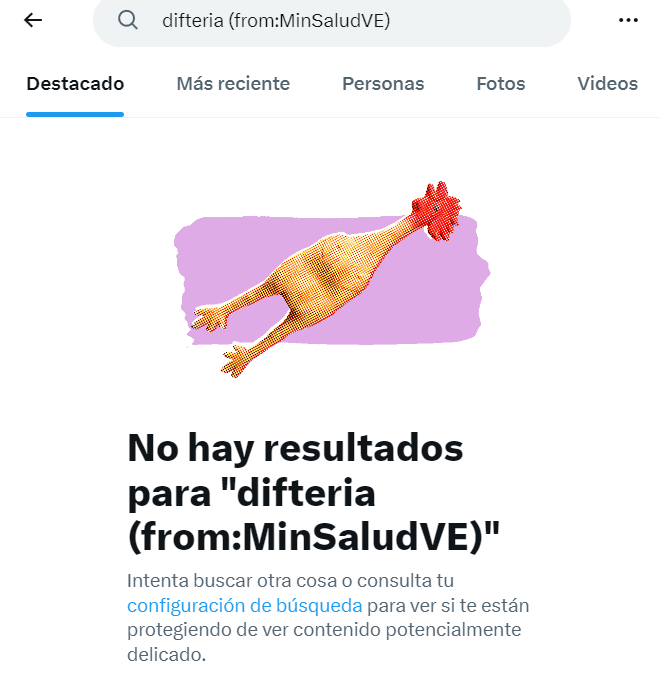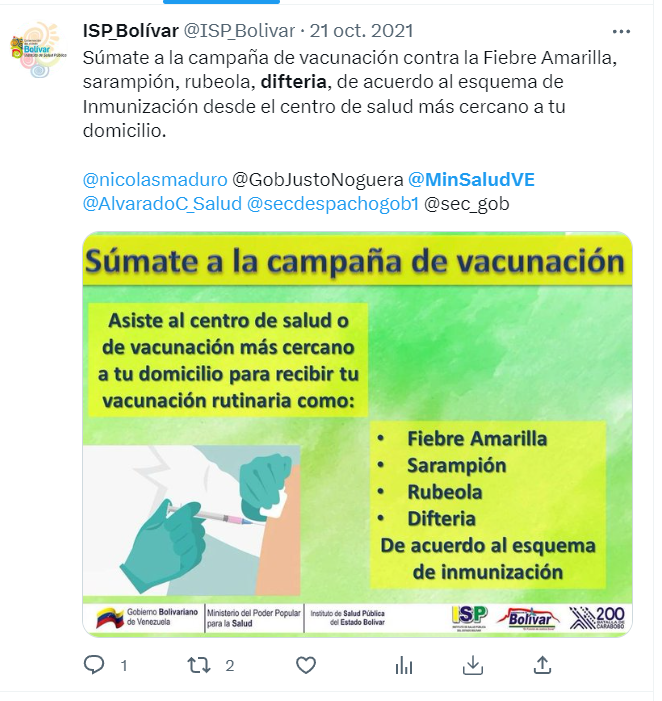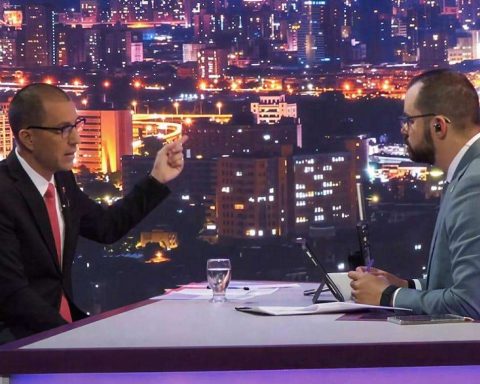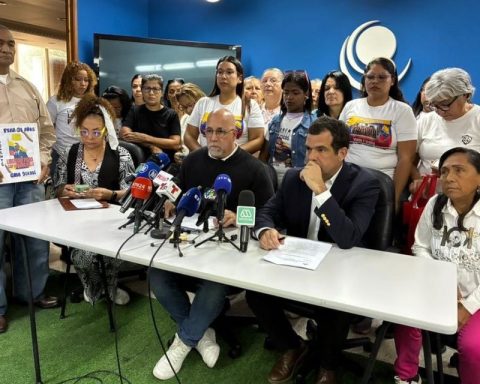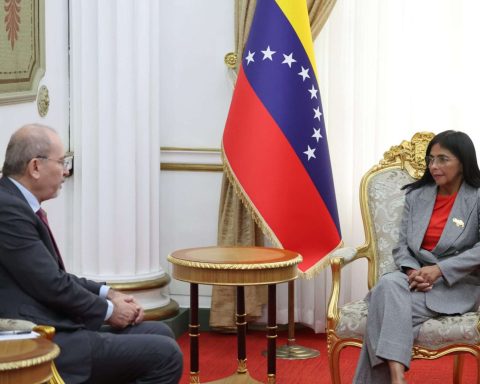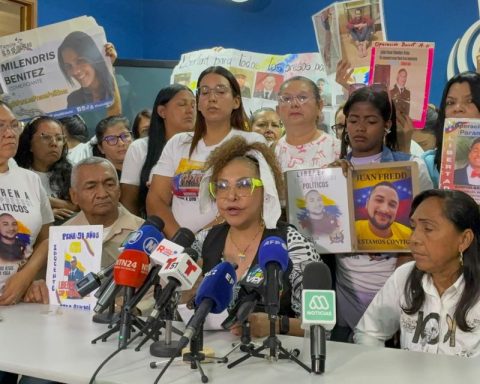The National Academy of Medicine confirmed on Wednesday, March 8, 2023 that the Ministry of Health of the government of Nicolás Maduro sent an epidemiological alert (addressed to authorities of medical centers) related to this infection of bacterial origin. There is no public information about an alleged outbreak of this disease in the official channels of the ministry headed by Magaly Gutiérrez. On the MinSalud website, there is only one note about diphtheria: it refers to the possible cause of death of Manuela Sáenz
Author: Alexis Correia
There is an epidemiological alert for diphtheria in Venezuelaalthough it is preserved as almost clandestine information, if we stick to the official communication channels of the government of Nicolás Maduro.
The National Academy of Medicine confirmed Wednesday March 8, 2023 the existence of a document from the Ministry of Popular Power for Health —dated on February 27 of that year and addressed to “unique health authorities, state directors, regional epidemiologists, and immunization coordinators”— in which it is recommended to increase the “vaccination actions” and a word that instills respect sneaks in: diphtheria.
the doctor Alejandro Crespopresident of the Aragua branch of the Venezuelan Society of Child Care and Pediatrics, showed the Ministry of Health circular as part of a thread of tweets from 6 of March from 2023:
What is diphtheria?
Why is the Ministry of Health in Venezuela issuing an Epidemiological Alert for that? pic.twitter.com/DhsDMCyk61
— Alejandro Crespo Freytes – Pediatrician (@AleCrespoF) March 6, 2023
Diphtheria cases detected in 2023
We do not know. The only centralized entity that can know all of this data nationally is the government of Nicolás Maduro, through its Ministry of Health. The statement issued by the Immunization Department of the office of Magaly Gutiérrez (designated in February 2022 and by profession lawyeraccording to the profile of the Andean Health Agency) does not contain any information on a number of suspected or confirmed cases.
It only indicates, in the title of the circular, that there is an epidemiological alert for diphtheria. Below we read:
«I am writing to you on the occasion of extending a Bolivarian and profoundly Chavista greeting, at the same time informing that with the purpose of alerting and strengthening the hospital and community response capacity to efficiently and effectively develop the increase in vaccination actions that allow coverage of the population, all as an essential strategy for the prevention of immunopreventable diseases: with emphasis on diphtheria»
If there is an alert, we assume that there is a suspected outbreak of the disease, or that at least cases have been detected. Is there more information in other official communication channels?
Ministry of Health has a website with a search engine. If we write the word “diphtheria” in that search engine, on Wednesday, March 8, only one result appeared, and of a historical type. The article dated November 2022 cites diphtheria as presumed cause of death of Manuela Sáenz (1797-1856).
The Ministry of Health also has an official Twitter account: @MinSaludVE. In the advanced search engine of the social network, we tried to check if there were any recent posts on diphtheria, restricting the search to this account. There were no results. Neither in 2023 nor in other years counted from 2006.
If we extend the search to tweets that are not from @MinSaludVEbut they have cited that account, the most recent post was from 2021. It belongs to the Bolívar State Public Health Institute and refers to a vaccination campaign:
Unofficially, the portal firewood effect refers to a case detected in 2023 in Bolívar, which presumably generated the government alert. “This new alert is because if there is a case, we are going to have a few more. That is why you have to run with vaccination, “said the infectologist María Viki Zabaleta in a explanatory report of firewood effect (Wednesday 03/08/2023).
What is diphtheria?
The basic information: It is an infection of bacterial origin, unlike (for example) COVID-19, whose contagion agent is a virus. It is considered “serious” (according to the reference website Mayo Clinic) and “usually affects the mucous membranes of the nose and throat.” It is very rare in developed countries. It can be fatal in up to 10% of the most severe cases, but this fatality increases to 20% or more in children under 5 years of age.
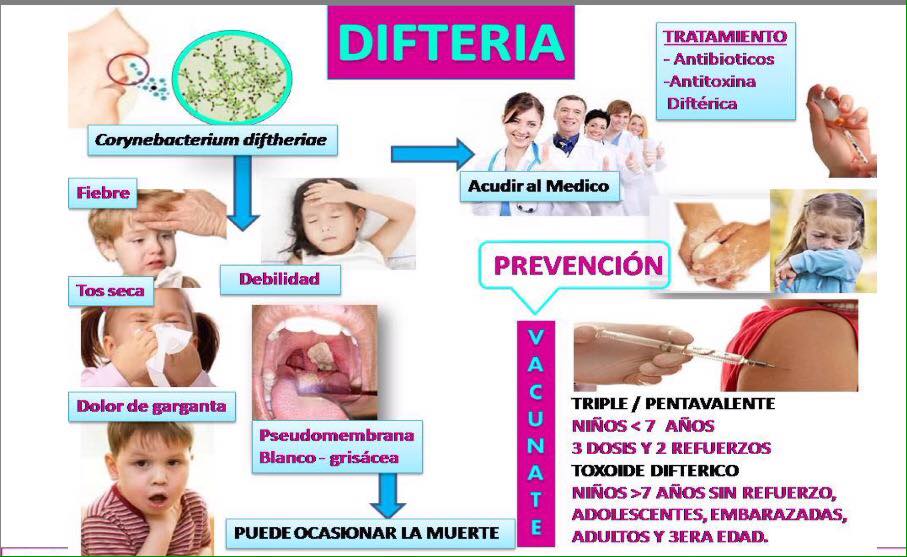
Disclosure Chart Venezuelan Society of Infectious Diseases (Facebook, 2018)
Diseases of bacterial origin are treated with antibiotics, viral ones are not. In very general lines, bacteria are living unicellular organisms that are microscopic in size but much larger than a virus, and with a much slower ability to replicate, although the infections they cause are usually more serious.
As for viruses, science has not reached a consensus about whether they can exactly be considered living beings.
Diphtheria is caused by the bacterium Corynebacterium diphtheriae, It usually multiplies in the throat. It is transmitted by airborne droplets when an infected person sneezes or coughs, especially when there are many people crowded together. Also through contaminated personal or household items.
What do we know about cases of diphtheria in Venezuela in previous years?
In Venezuela, the Ministry of Health has not issued official epidemiological bulletins (or reported on vital statistics) since 2016. The last of those newsletters It is kept on the website of the NGO Observatorio Venezolano de la Salud. There it is indicated that in the accumulated of all 2016 there were 324 suspected cases of diphtheria. None had been reported in 2015.
Since then there has been official silence (you can review the special Opacity promotes a fictional Venezuelaof Transparency Venezuela and espaja.com), but the Pan American Health Organization has issued very relevant information: a diphtheria epidemic in the country.
«Between 2016 and 2020 in Venezuela there was an epidemic of diphtheria. After more than 20 years without cases, 1,600 cases and 300 deaths were reported,” recalls the National Academy of Medicine in its statement of 03/08/2023. In this PAHO newsletter 2020 you can read more about this outbreak.
In summary, these are the diphtheria figures that we have and that only go up to 2020, if we take PAHO as a source:
- 2016: 324 suspected cases (17 deaths)
- 2017: 1,040 suspected cases (103 deaths)
- 2018: 1,208 suspected cases (151 deaths)
- 2019: 488 suspected cases (21 deaths)
- 2020: 54 suspected cases (no deaths)
Between the years of 2017 and 2018, the outbreak in Venezuela represented 88% of the known cases in the American continent. In 2021, PAHO did not report any cases in Venezuela, but it is not specified if this is due to a lack of information from the authorities of our country.
Why was there a spike?
The main reason for this outbreak —unprecedented in decades— is attributed to low vaccination coverage, according to the National Academy of Medicine:
In Venezuela diphtheria is included in the pentavalent vaccine; this vaccine also protects against: tetanus, whooping cough, haemophilus influenzae type B disease, Hepatitis B. As has been warned in previous communications from the National Academy of Medicine, Vaccination coverage in Venezuela in relation to the Diphtheria vaccine (DPT) is below the figures recommended by the WHO (95%), for the first dose it is 73% and the third dose is 54%.
“In Venezuela, vaccine coverage is bad. The ideal is to have 85% of people vaccinated, but in our country only 56% of children have three doses when they are one year old,” said the pediatrician Alejandro Crespo on his social networksand added, based on a graphic published through the portal prodavinci (2022) with data from WHO and Unicef: «We have the worst coverage of the third dose of the vaccine in South America».
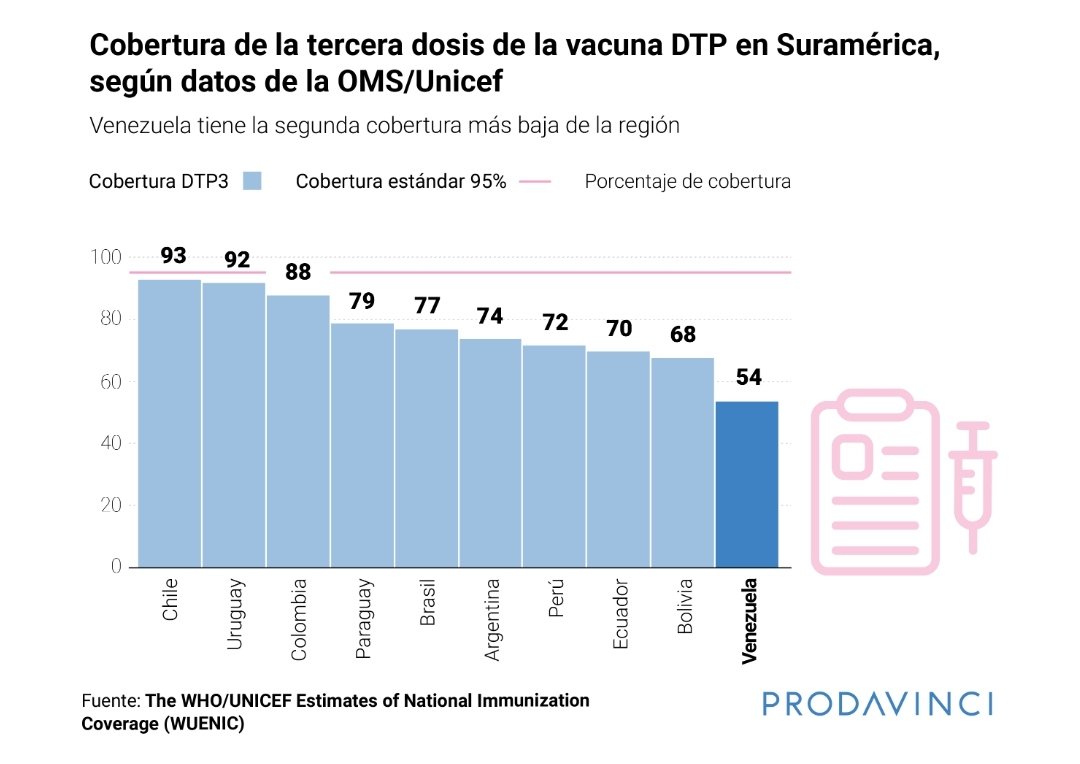
Post Views: 508

